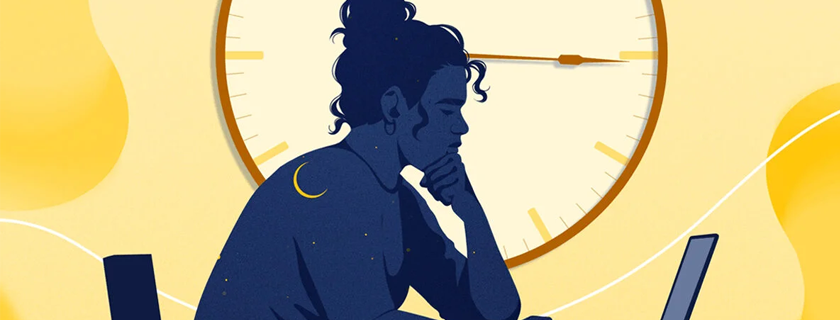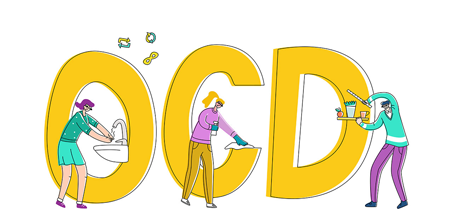
Obsessive-compulsive disorder (OCD) is a mental health condition that affects millions of people worldwide. It is characterized by the presence of recurring, intrusive, and unwanted thoughts, images, or impulses that cause anxiety and distress, and often leads to compulsive behaviors or mental acts that are performed to neutralize or alleviate the anxiety. OCD can significantly impact a person's quality of life, as it often interferes with daily activities and relationships.
The exact causes of OCD are still unclear, but research suggests that a combination of genetic, environmental, and neurobiological factors may contribute to the development of the disorder. The brain regions involved in regulating behavior and emotions, such as the basal ganglia and the prefrontal cortex, have been found to be affected in people with OCD. Some studies have also suggested that imbalances in certain neurotransmitters, such as serotonin and dopamine, may play a role in the development of OCD.
The symptoms of OCD can be divided into two categories: obsessions and compulsions. Obsessions are intrusive and repetitive thoughts, images, or impulses that are difficult to control and cause significant anxiety and distress. Some common obsessions include fear of contamination or germs, doubts about one's actions, intrusive sexual or violent thoughts, and excessive concern with order, symmetry, or cleanliness.
Compulsions are repetitive behaviors or mental acts that are performed to neutralize or alleviate the anxiety caused by obsessions. Some common compulsions include excessive washing or cleaning, checking and rechecking, counting, repeating words or phrases, and arranging objects in a specific way. While compulsions can provide temporary relief, they often become time-consuming, interfere with daily activities, and can cause significant distress and impairment.
OCD can have a significant impact on a person's quality of life. The distress and impairment caused by the disorder can affect a person's social, occupational, and educational functioning. People with OCD may avoid certain situations or activities that trigger their obsessions and compulsions, leading to social isolation and difficulties at work or school. They may also experience feelings of shame, guilt, or embarrassment, which can further exacerbate their symptoms.
Treatment for OCD typically involves a combination of medication and psychotherapy. Selective serotonin reuptake inhibitors (SSRIs), which are a type of antidepressant, are often prescribed to help reduce the symptoms of OCD. These medications work by increasing the levels of serotonin in the brain, which can help regulate mood and anxiety.
Psychotherapy, specifically cognitive-behavioral therapy (CBT), is also an effective treatment for OCD. CBT is a type of therapy that focuses on identifying and changing negative or distorted thoughts and behaviors. In the case of OCD, CBT typically involves exposure and response prevention (ERP), which is a structured and gradual approach to confronting and tolerating anxiety-provoking situations or triggers, while avoiding performing compulsive behaviors. This process helps people with OCD learn to tolerate uncertainty and anxiety, and reduce the frequency and intensity of their symptoms.
In addition to medication and psychotherapy, other self-help strategies can be helpful in managing the symptoms of OCD. These strategies include:
1) Mindfulness meditation:- Mindfulness meditation involves focusing your attention on the present moment, and observing your thoughts and feelings without judgment. This can help reduce the intensity of obsessions and compulsions.
2) Exercise:- Regular exercise can help reduce anxiety and stress, and improve mood and overall well-being.
3) Sleep hygiene:- Getting enough sleep is essential for good mental health. Practicing good sleep hygiene, such as avoiding screens before bedtime and maintaining a regular sleep schedule, can help improve sleep quality.
4) Stress management:- Stress can exacerbate the symptoms of OCD. Practicing stress-management techniques, such as deep breathing, progressive muscle relaxation, and guided imagery, can help


Get Free Appointment
We are more than happy to give advice on which counselling is most suitable for your needs, depending on your problems. Why not ask us to view your problems and discuss for solution.
